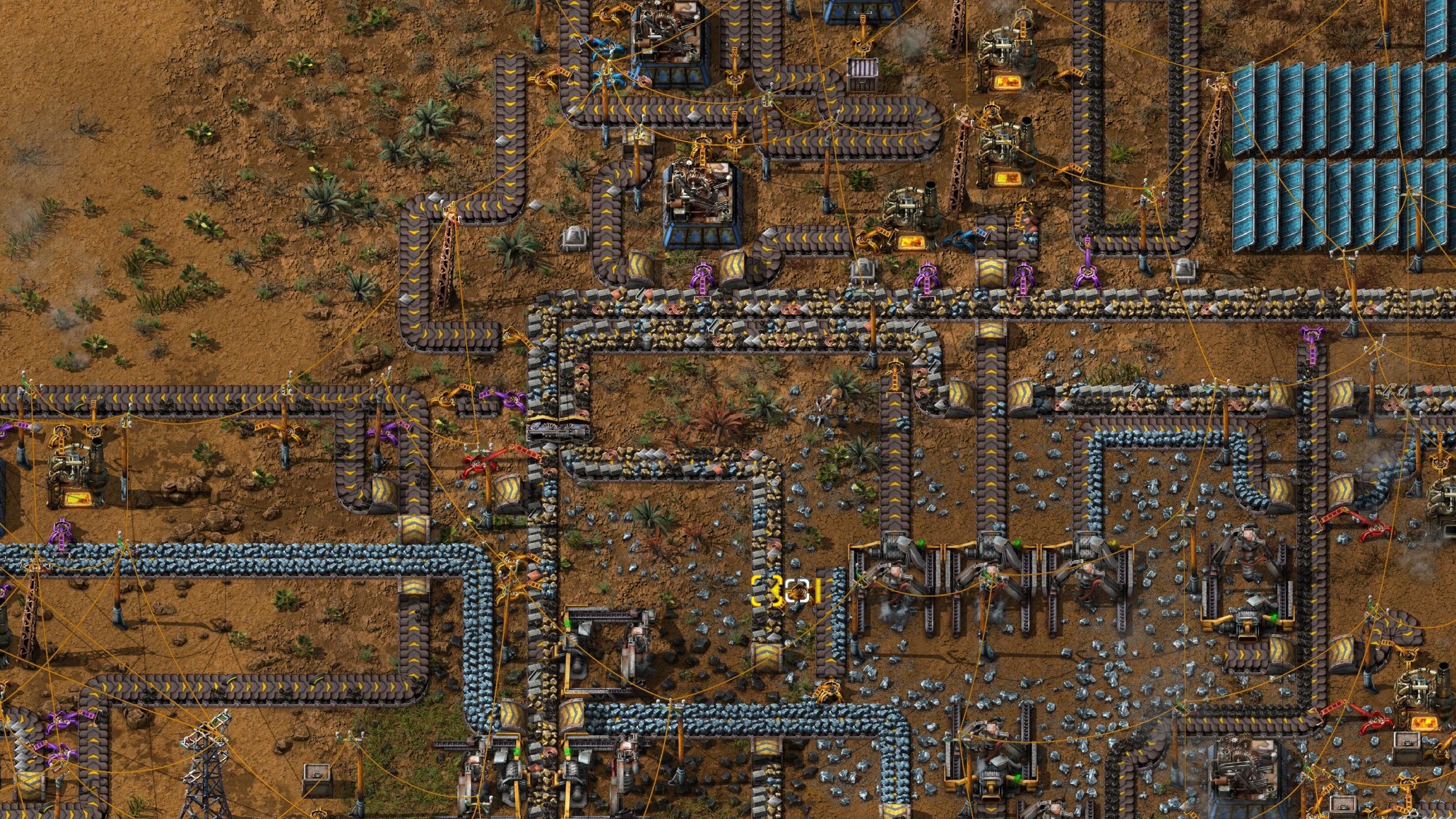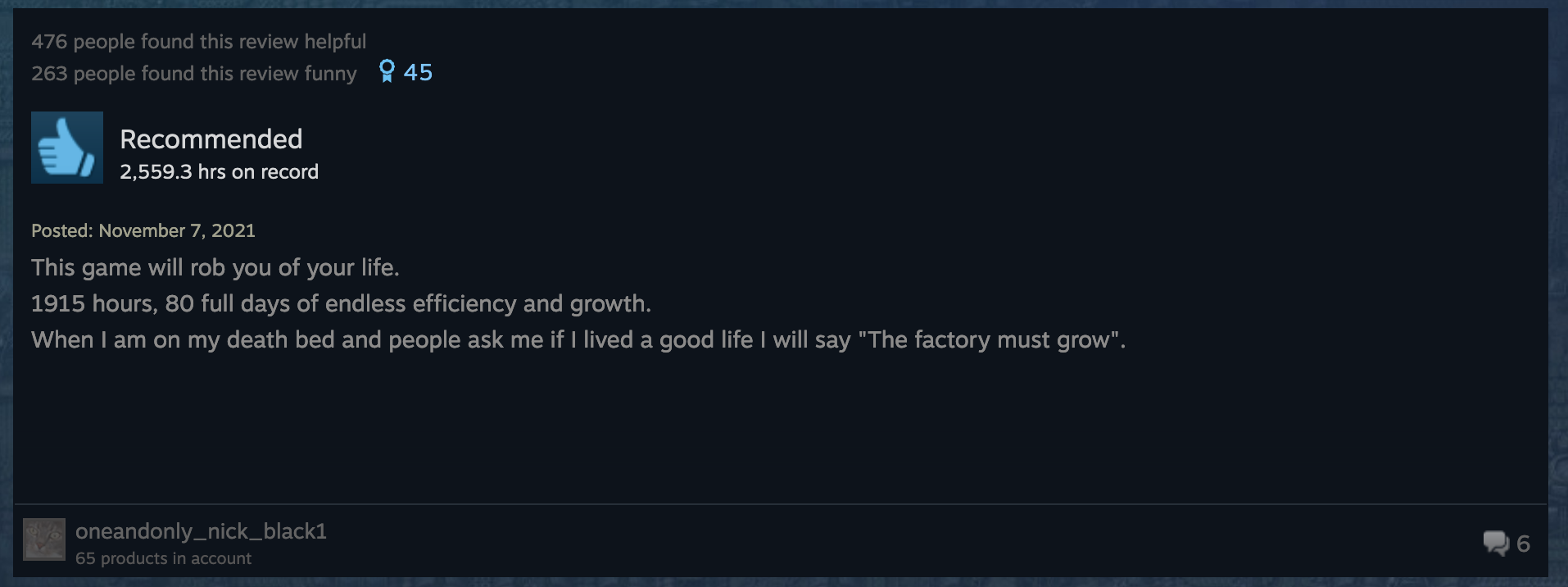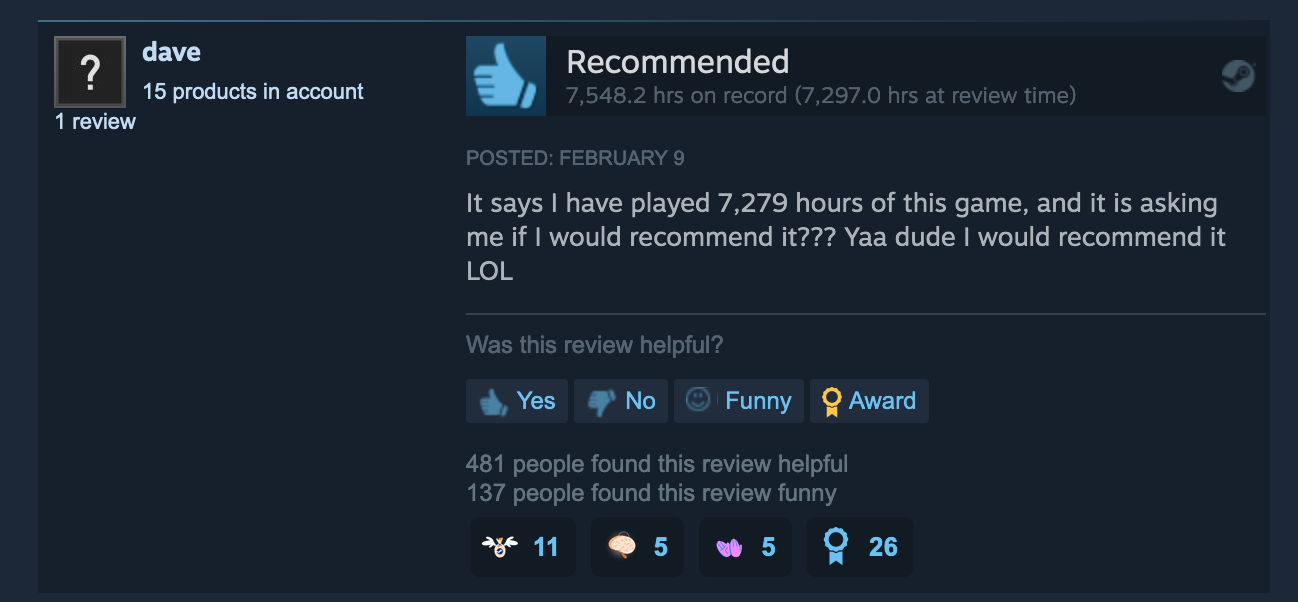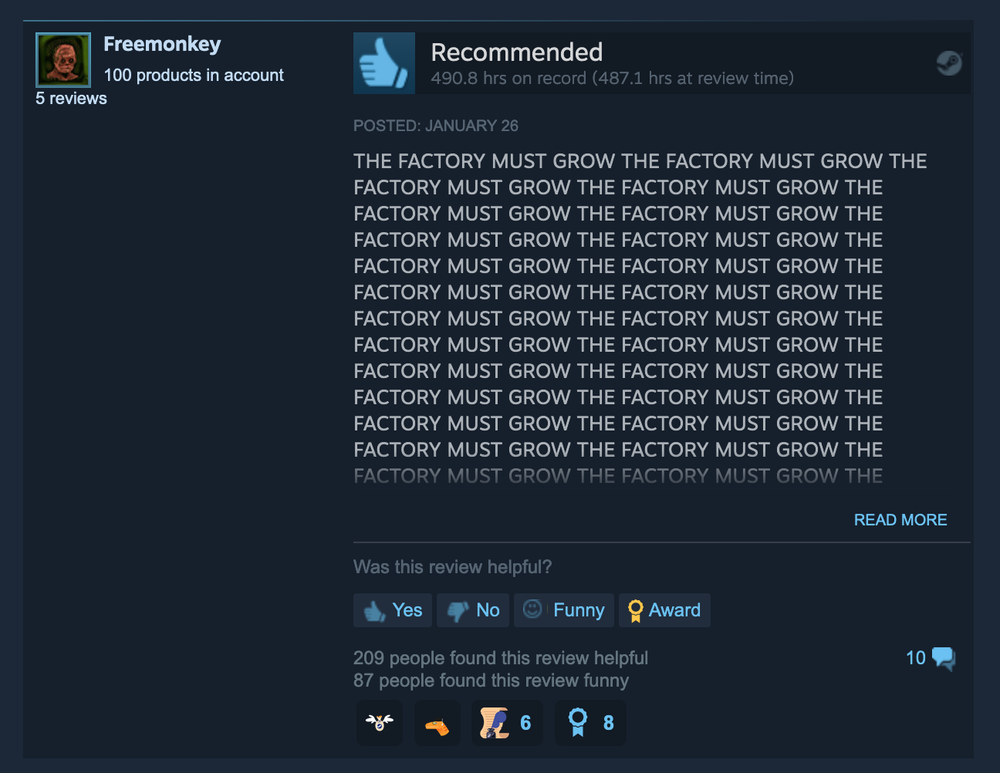The other day, a good friend with 540 hours logged in a video game called Factorio sent a link to a Reddit post to our group of mutual friends entitled “Why Factorio is an inherently good and addicting game because of its exploitation of basic human psychology”.
Before I get into that: For those that don’t know, Factorio is a game about building and improving massive, complex, global-scale factories. Exhilarating right? Just wait until you see how it looks:

Yet, my friend has almost fourteen working weeks in it. If you think 540 hours is a lot, you should check out their reviews on Steam. These reviews support a 98% Overwhelmingly Positive recommendation since its release in 2013.



I’m fascinated by human psychology, so I took the bait, and I found the author’s take really useful in life and work. The main idea is that we seek equilibrium:
“Factorio is a good game because this theory of equilibrium is imbedded [sic] deep into the core game design. When you start the game, there is an immediate lack of equilibrium; you have machines, but no coal. Your innate reaction is to establish equilibrium by getting coal. In doing so, you accidentally discover game mechanics and learn how to play the game.”
This hit me in the gut, having begun many DevOps or Infrastructure projects from zero. With engineering work, or any corporate work, we have an imbalance:
Too many release candidates, not enough releases.
Too many requests, not enough servers.
Too many stories, not enough people.
Technical Debt vs. Features
Build vs. Buy
It struck me how fundamental that is. You might even go as far as to say that every conscious decision can be defined as trying to achieve a balance between two extremes:
Exercising
Paying bills
Sleep
Vacation
Eating
We do all this without thinking much (or at all) about it. It’s easy to understand then why people love this game so much: it’s an instinct to fix imbalances and bring the system to an equilibrium. Could we reduce every career to “Equilibrium Engineer”? Regardless of your job, when work gets confusing or complex, it’s an excellent re-centering exercise to think; as the author of the post states:
“Hey, everything is out of equilibrium and will continue to be increasingly out of equilibrium. And you just so happen to have the power to fix that.”
And to you DevOps folks, maybe LordKoichev has coined a new rallying cry for the industry:

